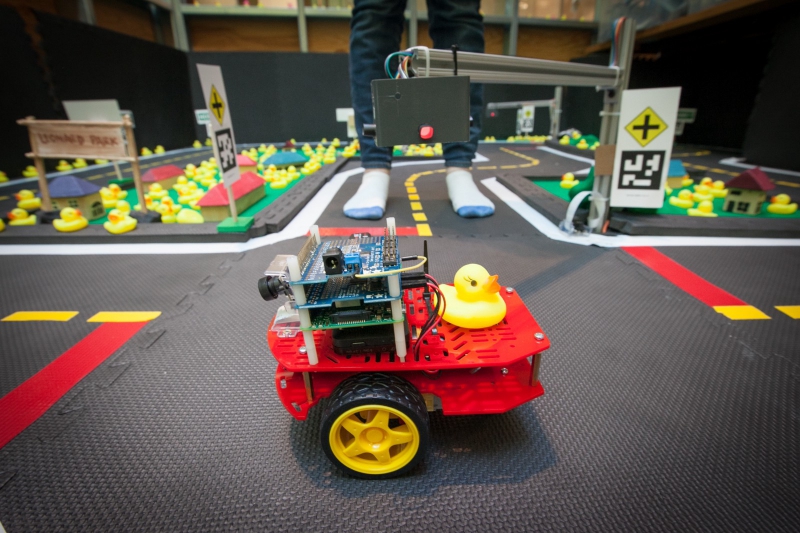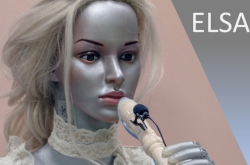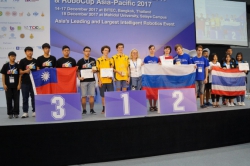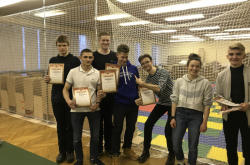Format of the competition
A newbie to the conference, AI Driving Olympics is a competition made unique by its cooperation with Duckietown. This is an open research project on the field of autonomous robotics. Anyone can contribute to this scientific initiative and offer their own solutions in the field.
The projects consists of two parts: Duckiebots, inexpensive mobile robots equipped with a fisheye camera and built from ready-made components, and Duckietowns, toy models of cities with roads, buildings, crossings and road signs where the robots operate. The researchers’ task is to program the robots in such a way to ensure that Duckiebots move around the town as successfully and smoothly as possible, transporting rubber ducks, the citizens of Duckietown.
Duckietown was initially created in 2016 by specialists at Massachusetts Institute of Technology (MIT) as a platform for research in the field of algorithms for self-driving cars. You can see the first edition of the platform in action in The Duckumentary.
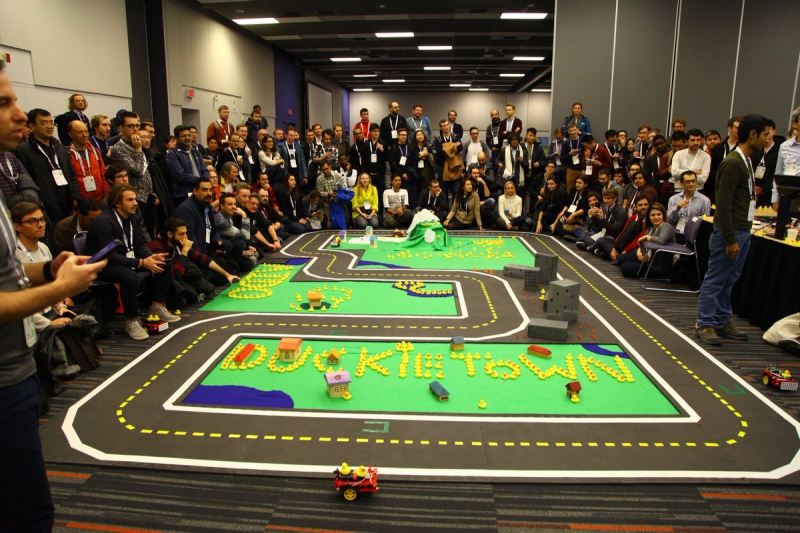
Anyone can take part in the Duckietown project from wherever they are in the world. All they have to do is to build their own platform, assemble the robots and start writing algorithms. All the source codes are available on GitHub. The algorithms created by contributors can go on to be used in the development of self-driving cars: their digital architecture is very similar to Duckiebots.
ICRA 2019: training and winning
Since its foundation in 2016, the format gained popularity all over the globe, with different companies starting their own research on Duckietown, including the St. Petersburg-based JetBrains Research. This is a common undertaking by scientific groups in different subject fields created by the company JetBrains. It helps scientists and research groups focus on their work without worrying about grant-seeking and other organizational issues.
It is there that Alexander Karavaev, Polina Noskova, Al-Naim Rami, Egor Zamotaev and Oleg Suzdalev, third-year students at ITMO University’s Faculty of Control Systems and Robotics, conducted their winter work placement. Having started developing Duckiebots algorithms as part of their internship, they continued their endeavor upon their return to ITMO University under the guidance of Alexander Kapitonov, associate professor at the faculty. Working in their own laboratory, the team built a model of the town and continued writing code with the aim of participating in the ICRA 2019 competition.
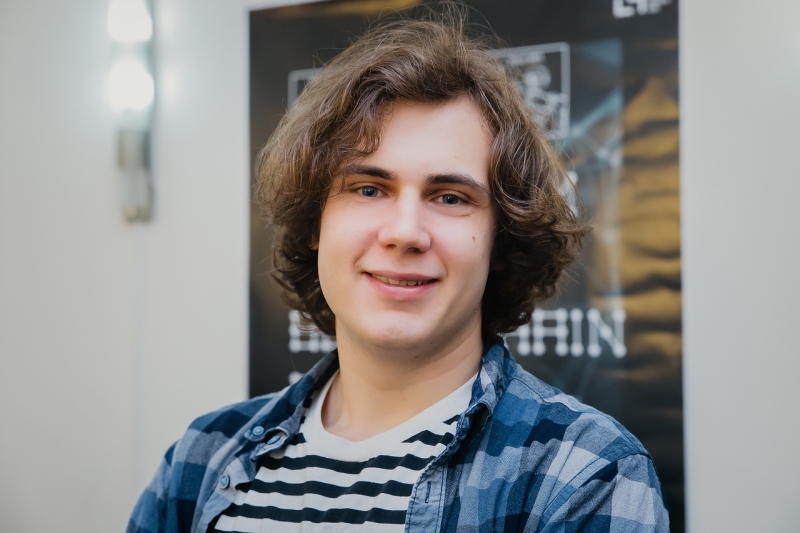
“Even before we started our internship, the JetBrains team had trained a neural network for semantic segmentation. This is essentially a special algorithm that segments images from a bot’s camera. Let’s say we’re working with an image of a road. It will be the network that will assign each pixel with its own type: for example, a white stripe, a sign, or a duck that needs to be bypassed. What we get is a mechanism where the computer processes images by itself, after which a controller decides to what to do next. In the course of the first month of our training, we focused solely on architecture; then we proceeded to making improvements to the existing solution. During the last days before the competition, we discovered that the bot doesn’t have enough power capacity to process images in real-time. So we hurried to add a special feature to cover for that in the half an hour before the applications closed, just to be on the safe side,” shares the team’s member Alexander Karavaev.
Their efforts paid off: JBRRussia emerged as the absolute winner of the 2019AI Driving Olympics. Their bot won in all three challenges it had to face: to drive through a designated course, to drive through an obstacle course with ducks, and to drive through a course with crossings, road signs and traffic jams. Ironically, the team had only been holding out to win the first challenge.
Despite their impressive work, ITMO University students never made it to Montreal to participate in the conference, as AI Driving Olympics is a fully remote competition. Anyone, whether they have their own bot or not, could join the contest by writing their own solution, running it in a simulator and sending it to the server. The actual robots could be launched from Moscow just as well as they would be from Montreal. Representing the team on the day were two staff members of JetBrains Research, with the students following the developments via a live broadcast of the event.
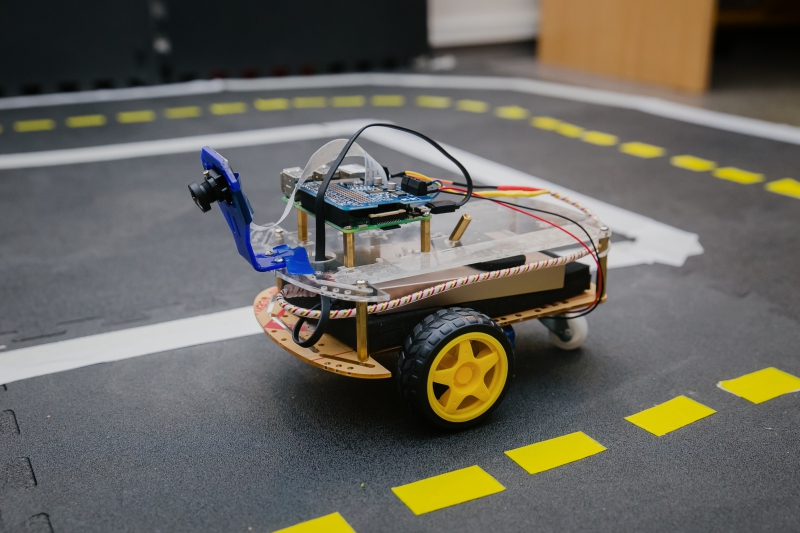
Plans after AI Driving Olympics
Winning in the ICRA competition doesn’t imply any material reward, but it makes a great addition to one’s CV. What’s more, it contributes to the development of Duckietown and demonstrates the successes of the project to the wider public.
“Our achievement can show the university that there is a project that other students can get interested in, too,” says Al-Naim Rami. “The majority of the software component here is already done and dusted, and you can contribute to improving the existing technology, add on your own solutions, experiment. For example, you can search for ways to incorporate more routes and more bots or teach them to communicate via flashlight signals. The options are many and varied, as are the opportunities to test them out: AI Driving Olympics is hosted twice a year, and you can already start preparing for the next installment.”
Right now, the students are considering how to involve as many of their peers as possible in the participation in Duckietown. Possible options include using the space on the roof of ITMO’s campus on Birzhevaya Line 14, conducting all the necessary works first.
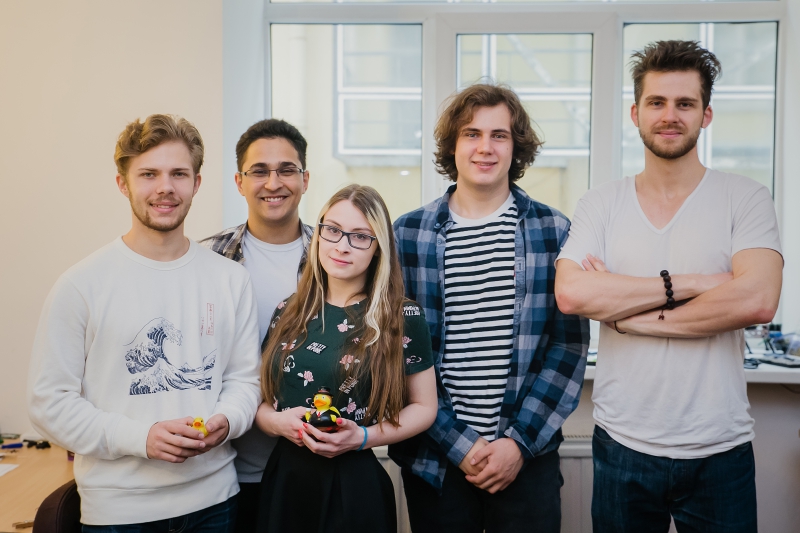
The students’ plans also include helping out in the creation of a new educational program on the Internet of Things and cyber-physical systems at ITMO. According to their mentor Alexander Kapitonov, ITMO University’s students’ successes in robotics competitions such as AI Driving Olympics and Mile of Technology (you can read about the latter here) demonstrate the effectiveness of using machine learning and AI in specific hardware solutions. The winners of the ICRA competition will serve as experts and help to create and organize different elements of the new educational programs, and will maybe even develop a special track on Duckietown.
